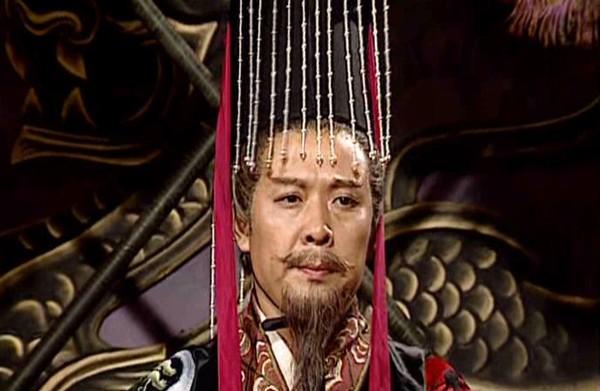After the fall of the Western Han Dynasty, Liu Xiu, who was born into the imperial family, finally realized the "Guangwu Zhongxing" after some efforts and established a unified Eastern Han Dynasty. In contrast to Liu Xiu was the Shu Han emperor Liu Bei, who struggled all his life, and although he created the Shu Han regime that divided one side, he failed to achieve "Zhongxing". So the question is, why can Liu Xiu realize ZTE, but Liu Bei cannot realize the wish of "reviving the Han Room"?

First, the foundation is different
Liu Xiu and Liu Bei had many similarities, they were both from the Yuanzhi Sect, both were descendants of emperor Jing of Han, and both lost their fathers very early. However, Liu Xiu's foundation is much better than Liu Bei's! Liu Xiu's family has a strong strength in the Nanyang area, his eldest brother Liu Bosheng befriends various haojie, while Liu Xiu is good at business and has a lot of wealth in the family. Later, Liu Xiu followed his eldest brother and quickly formed an army of his own.
Liu Xiu relied on powerful landlords to fight the world, and his family was also considered to be a powerful landlord in the Nanyang region, in contrast, Liu Bei's foundation was too far away! Liu Bei's family had already declined as early as the Western Han Dynasty, and was not prominent in Zhuo County, and due to the early death of his father, he had to "sell mats for a business" with his mother. The same is the imperial family, Liu Xiu is a landlord, and Liu Bei is a poor peasant, compared with Cao Cao and Sun Quan, Liu Bei's foundation is also very poor, and he lags behind in the "starting point".
Second, the situation is different
In the process of fighting the world, Liu Xiu mainly relied on the powerful landlords in Henan and Hebei. He declared himself emperor in Hebei, then led an army into the Henan region, and then used Luoyang as the capital to carry out a unified war. At that time, the world was in chaos, and the masses rose up together, and although Liu Xiu was attacked on all sides, he seized the opportunity for them to fight for their own battles. Liu Xiu adopted the strategy of "first Guandong, then Longshu", and carried out various crackdowns on the Qunxiong, and achieved unification in twelve years.
Although Liu Bei occupied Xuzhou in the early years, he quickly lost it, and since then, he has never had his own territory under the fence. Without a base, development cannot be achieved. Later, with the assistance of Zhuge Liang, Liu Bei finally realized the strategy of "crossing the Jing benefits". However, at this time, the world had already shown a situation of three kingdoms, and later lost Jingzhou. With the military strength of the Shu Han regime at that time, it was impossible to reverse the situation and change the situation in the world.
Third, the opponents are different
Liu Xiu was an emperor who was both literate and martial, and he studied in Taixue in his early years, and later commanded the Battle of Kunyang, defeating Wang Mang's hundreds of thousands of troops in one fell swoop, and his fame shocked the world. Later generations spoke highly of Liu Xiu, saying that he was "the most learned, the most able to fight, and the most able to use people." On the other hand, Liu Xiu's opponents, such as Zhang Bu, Kui Huan, and Gongsun Shu, were all warlords who only had the heart to divide one side and did not have the ambition to unify the world, and none of them were Liu Xiu's opponents.
Although Liu Bei "had the wind of Gao Zu and the instrument of heroes", he encountered one of the most difficult opponents, that is, Cao Cao. Cao Cao came from a family of officials and eunuchs, and his family had quite a lot of savings, not only the foundation was better than Liu Bei's, but also his ability was much higher, especially in the military and political aspects, Liu Bei "had the right to do things, and did not arrest Wei Wu". In addition to Cao Cao, Liu Bei also had an opponent, that is, Sun Quan, who occupied the land of Jiangdong and destroyed Liu Bei in the Battle of Yiling.
References: 1. Book of the Later Han Dynasty; 2. Romance of the Three Kingdoms; 3. Zizhi Tongjian